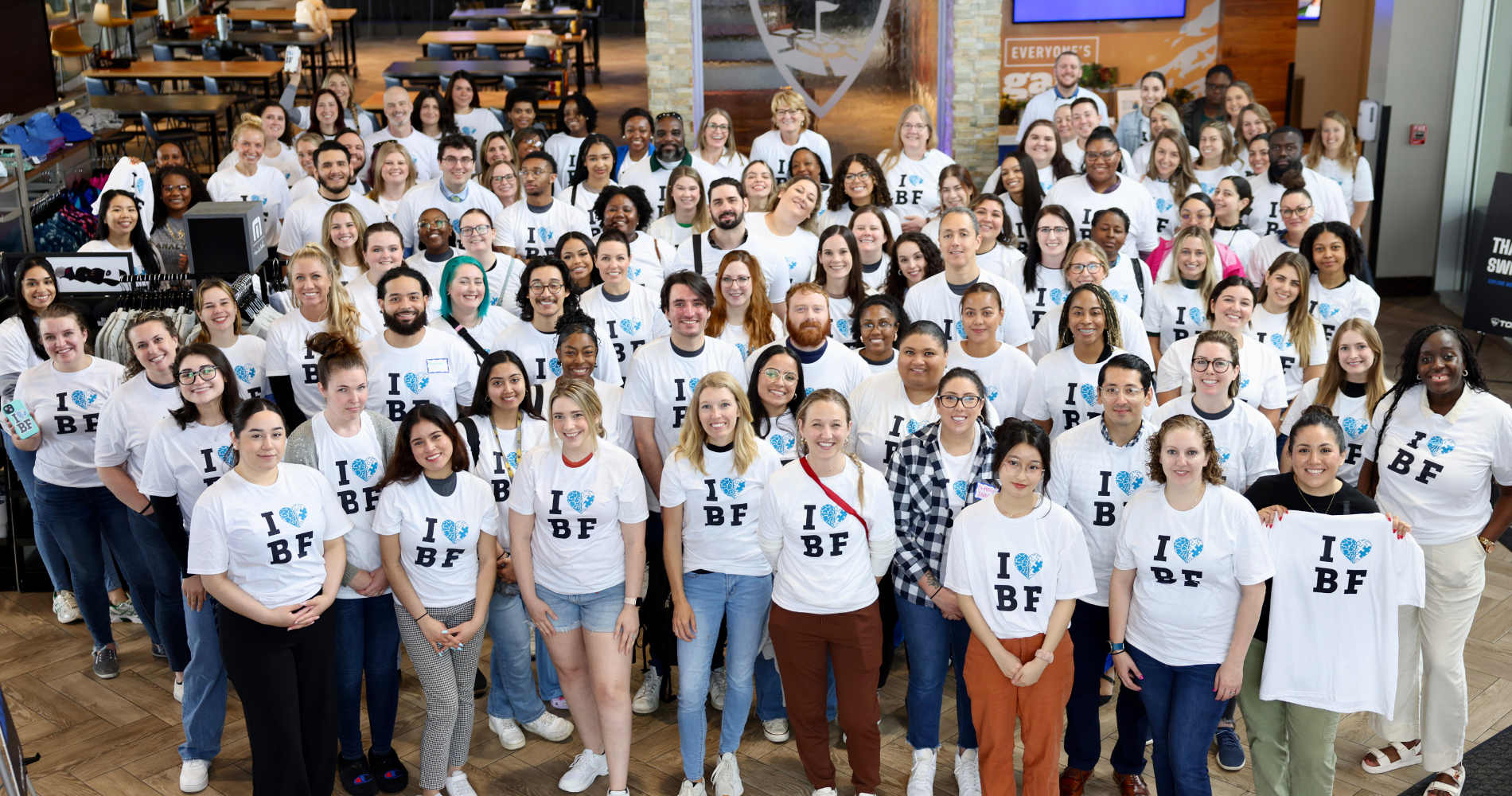
1. What is your title? Describe what you do.
My title is Talent Development Manager, and my role focuses on supporting professional development and growth in three main areas. I oversee and support BCBA supervision to help individuals on their path to becoming BCBAs, support the RBT credentialing process to assist technicians in earning or maintaining their RBT certification, and collaborate closely with the Care Coordinator Manager to provide guidance, training, and feedback that helps the Care Coordinator team deliver high-quality services.
The exciting aspect of this new role is its dynamic nature, continuously evolving to meet the needs of our organization. I work closely with our Director of Talent Development to build and refine processes, support career progression, and strengthen our credentialing process, all focused on the development of our technicians. My responsibilities range from ensuring quality and compliance in BCBA supervision practices and documentation to supporting the growth of technicians and Care Coordinators, ensuring alignment with both BACB standards and company goals.
“There’s something incredibly powerful about watching a training succeed and seeing real progress, whether that’s a technician new to the field or a seasoned RBT completing fieldwork to become a BCBA.”
2. What drew you to Behavioral Framework?
What drew me to Behavioral Framework initially was the company’s impressive growth, its strong mission, and the flexibility it offered. However, what’s kept me here is undoubtedly the people. The team here is made up of some of the most brilliant and thoughtful individuals I’ve had the pleasure of working with. Everyone brings a unique perspective, and there’s always someone ready to lend a hand or offer a fresh take, which has greatly expanded my competence in the field.
As an ABA professional and someone passionate about science, I truly believe it’s essential for clinicians to be exposed to a wide range of strategies and perspectives. Behavioral Framework fosters that kind of environment—one where we can all learn from each other, push boundaries, and grow. Plus, let’s be honest, it’s hard to not love BF when you work with a team that can crack a joke one minute but then crush an important deadline minutes later.
3. What are the most rewarding parts of your job?
The most rewarding part of my job is also the most challenging, which is why I find it so fulfilling. In this field, success relies on so many moving pieces coming together, and no two individuals are the same. I thrive on the complexity and constant evolution of the work, where each case presents a unique puzzle to solve.
But what I truly love is when those pieces finally fall into place. There’s something incredibly powerful about watching a training succeed and seeing real progress, whether that’s a technician new to the field or a seasoned RBT completing fieldwork to become a BCBA. For me, the greatest reward comes from witnessing that ‘aha’ moment—the moment when someone fully grasps a concept and can apply it independently.
4. What advice would you give to someone looking to pursue a role like yours? Are there specific character traits or skills/certifications they should possess?
If someone is looking to pursue a role like mine, I would encourage them to focus on building a strong foundation in both clinical practice and mentorship. Having experience as a BCBA is essential, but what really sets you up for success in a role like Talent Development Manager is the ability to balance clinical expertise with leadership, organization, and clear communication.
A few key traits that go a long way in this role are flexibility, empathy, and a proactive mindset. Because the role is always evolving, being adaptable and open to change is really important. You also need to be someone who enjoys helping others grow—whether that’s guiding someone through supervision, supporting credentialing steps, or coaching team members through feedback.
In terms of skills, a solid understanding of BACB supervision guidelines, RBT credentialing requirements, and adult learning principles is crucial. Strong organizational skills are also a must, since this role involves tracking a lot of moving parts. If you’re someone who can stay detail-oriented while keeping the bigger picture in mind, you’ll thrive.
5. What do you like best about Behavioral Framework?
What I love most about Behavioral Framework is my team. They’re an amazing group of hardworking, knowledgeable individuals who somehow manage to balance professionalism with a fantastic sense of humor. I genuinely appreciate how open and kind everyone is, always willing to lend a hand or share their expertise. The diversity among my colleagues and the unique perspectives they bring to the table make every day interesting and rewarding. It’s like working with a group of superheroes—a group of nerdy scientists ready to take on the world.
6. Would you recommend someone to work at Behavioral Framework? And why?
Absolutely, I would! Behavioral Framework is the kind of place where you get the best of both worlds—autonomy to create your own schedule and timeline, combined with the support of a cohesive and friendly team. There’s always someone ready to help or at least flash you a friendly smile when you need it. The variety of unique backgrounds and strengths among the staff not only helps you grow professionally but also keeps things interesting. It’s like being part of a well-oiled machine, but each cog has its own set of unique strengths.
